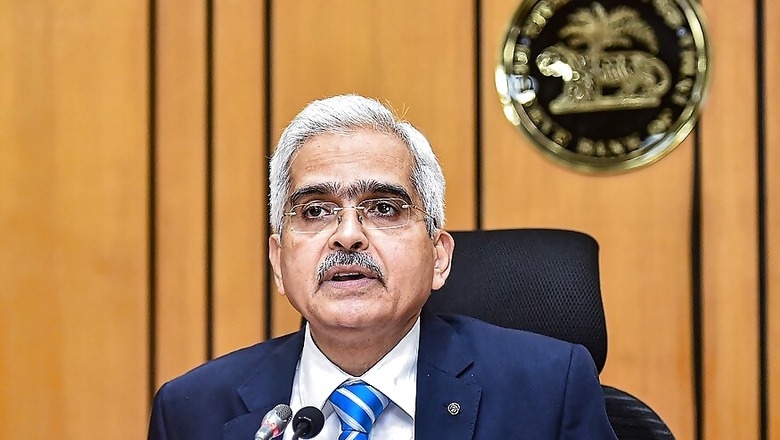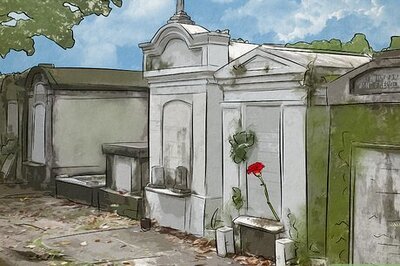
views
Amid stress in the financial system due to COVID-19, the Reserve Bank of India on Friday announced measures to inject Rs 3.74 lakh crore into the banking system through a slew of instruments, including the reduction in cash reserve ratio.
The other liquidity support measures included targeted long-term repo operation (TLTRO) and increasing the limit under the marginal standing facility (MSF) to 3 per cent from 2 per cent.
These three measures relating to TLTRO, Cash Reserve Ratio (CRR) and MSF will inject total liquidity of Rs 3.74 lakh crore to the system, RBI Governor Shaktikanta Das said while announcing the seventh bi-monthly monetary policy, a week before its scheduled date.
The governor said the Monetary Policy Committee (MPC) decided to advance its meeting scheduled for March 31, April 1 and 3, 2020 to March 24, 26 and 27 due to the evolving macroeconomic and financial conditions.
The RBI for the first time in over seven years announced to reduce the CRR, the percentage of deposits that banks have to mandatorily keep with the central bank, by 1 percentage point to 3 per cent.
The last reduction in CRR was done by the RBI in February 2013 by 25 basis points.
As a one-time measure to help banks tide over the disruption caused by COVID-19, it has been decided to reduce the CRR of all banks by 100 basis points to 3 per cent of net demand and time liabilities (NDTL) with effect from the reporting fortnight beginning March 28, 2020, the RBI said.
This reduction in the CRR would release primary liquidity of about Rs 1.37 lakh crore uniformly across the banking system in proportion to liabilities of constituents rather than in relation to holdings of excess SLR.
This dispensation will be available for a period of one year ending on March 26, 2021.
The RBI said due to the social distancing of staff and consequent strains on reporting requirements, it has decided to reduce the requirement of minimum daily CRR balance maintenance from 90 per cent to 80 per cent effective from the first day of the reporting fortnight beginning March 28, 2020. This is a one-time dispensation available up to June 26, 2020.
The Reserve Bank said it will conduct auctions of targeted term repos of up to three years tenor of appropriate sizes for a total amount of up to Rs 1 lakh crore at a floating rate linked to the policy repo rate.
Liquidity availed under the scheme by banks has to be deployed in investment-grade corporate bonds, commercial paper, and non-convertible debentures over and above the outstanding level of their investments in these bonds as on March 27, 2020, it said.
Banks shall be required to acquire up to 50 per cent of their incremental holdings of eligible instruments from primary market issuances and the remaining fifty per cent from the secondary market, including from mutual funds and non-banking finance companies.
Investments made by banks under this facility will be classified as held to maturity (HTM) even in excess of 25 per cent of total investment permitted to be included in the HTM portfolio, it said, adding exposures under this facility will also not be reckoned under the large exposure framework.
The first TLTRO auction will be held today, the RBI said.
The central bank also increased the limit under MSF to 3 per cent from 2 per cent, immediate.
Under the marginal standing facility (MSF), banks can borrow overnight at their discretion by dipping up to 2 per cent into the Statutory Liquidity Ratio (SLR).
This is intended to provide comfort to the banking system by allowing it to avail an additional Rs 1.37 lakh core of liquidity under the LAF window in times of stress at the reduced MSF rate,RBI said.
This measure will be applicable up to June 30, 2020.



















Comments
0 comment